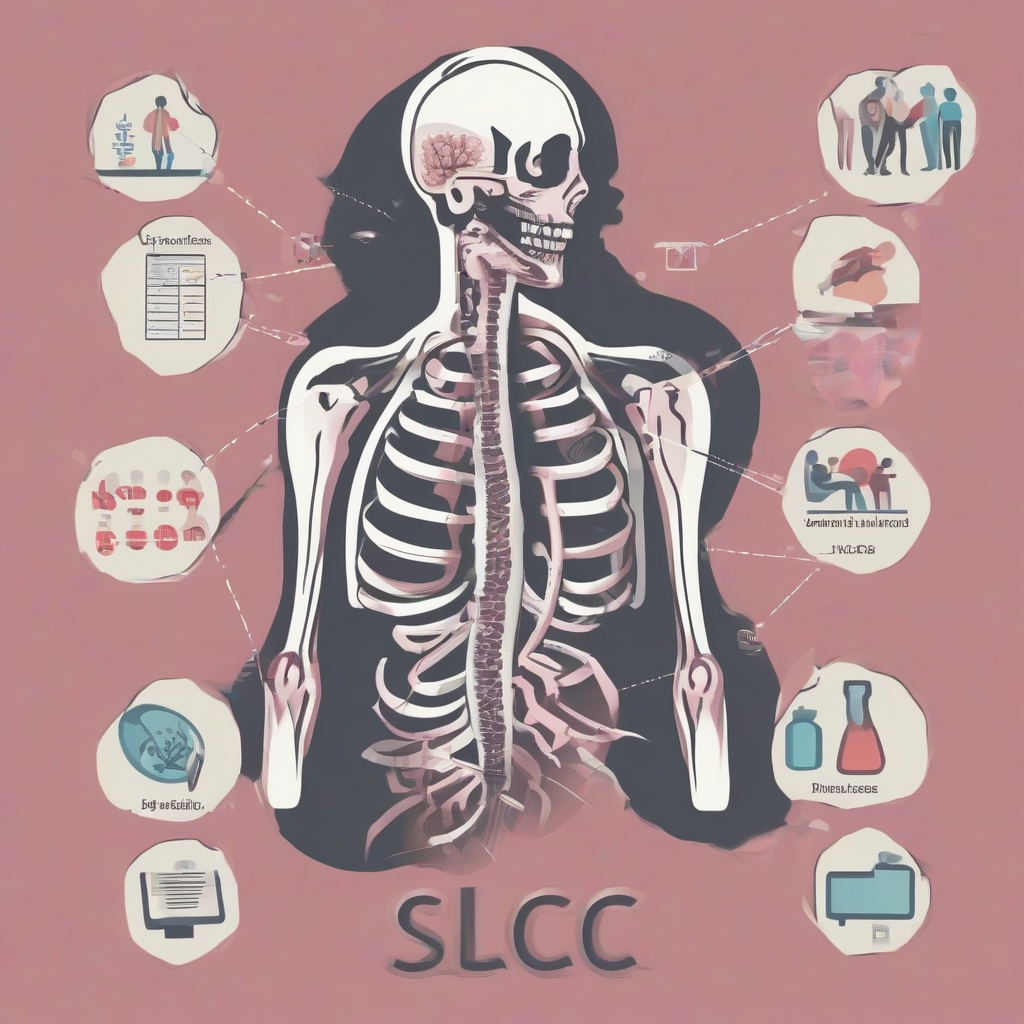KRAS-Mutated Non-Small Cell Lung Cancer: A Comprehensive Treatment Overview
KRAS mutations are prevalent in non-small cell lung cancer (NSCLC), representing a significant challenge in oncology. These mutations drive tumor growth and progression, making treatment particularly difficult. However, significant advancements in targeted therapies and immunotherapies are transforming the landscape of KRAS-mutated NSCLC treatment.
Understanding KRAS Mutations in NSCLC
The KRAS gene encodes a protein involved in cell signaling pathways that regulate cell growth and division. Mutations in this gene lead to constitutive activation of these pathways, resulting in uncontrolled cell proliferation and tumor formation. Different KRAS mutations exist, with some showing varying responses to specific therapies. Accurate identification of the specific KRAS mutation is crucial for guiding treatment decisions.
- Prevalence: KRAS mutations are found in approximately 25-30% of NSCLC patients, making it a common driver of the disease.
- Types of Mutations: Common KRAS mutations include G12C, G12V, G12D, G12S, G13D, and others. These mutations can impact the effectiveness of various treatments.
- Clinical Significance: KRAS mutations are often associated with advanced-stage disease, poor prognosis, and resistance to traditional therapies like EGFR tyrosine kinase inhibitors (TKIs).
Treatment Strategies for KRAS-Mutated NSCLC
Treatment strategies for KRAS-mutated NSCLC have evolved considerably. While traditional chemotherapy remains a cornerstone of treatment, targeted therapies and immunotherapies are increasingly playing a significant role.
1. Chemotherapy
Chemotherapy remains a crucial treatment option for KRAS-mutated NSCLC, particularly in advanced stages. Commonly used chemotherapeutic agents include platinum-based regimens (cisplatin or carboplatin) combined with other cytotoxic drugs like pemetrexed or docetaxel. The choice of regimen depends on several factors, including the patient’s overall health, the stage of the disease, and prior treatment history.
- Platinum-based doublets: These remain the standard of care for many patients with advanced KRAS-mutated NSCLC.
- Combination regimens: Combining chemotherapy with targeted therapy or immunotherapy is often explored in the advanced setting.
- Toxicity: Chemotherapy can cause significant side effects, necessitating careful monitoring and supportive care.
2. Targeted Therapy
The development of targeted therapies represents a major advancement in KRAS-mutated NSCLC treatment. These therapies aim to specifically target the mutated KRAS protein, inhibiting its activity and hindering tumor growth. Sotorasib (AMG 510) and adagrasib (MRTX849) are examples of KRAS G12C inhibitors that have shown significant clinical activity.
- KRAS G12C inhibitors: These are groundbreaking drugs that directly target the KRAS G12C mutation. They have demonstrated impressive response rates and improved progression-free survival in clinical trials.
- Mechanism of action: KRAS G12C inhibitors bind to the mutated KRAS protein, preventing its activation and inhibiting downstream signaling pathways.
- Resistance mechanisms: While effective, resistance to KRAS G12C inhibitors can develop. Research is ongoing to understand and overcome these resistance mechanisms.
3. Immunotherapy
Immunotherapy harnesses the power of the patient’s own immune system to fight cancer. While initially showing limited effectiveness in KRAS-mutated NSCLC, combination strategies with immunotherapy are now being investigated. Immune checkpoint inhibitors, such as anti-PD-1 or anti-PD-L1 antibodies, are sometimes used in combination with chemotherapy or targeted therapy.
- Immune checkpoint inhibitors: These drugs block the interaction between immune cells and cancer cells, allowing the immune system to recognize and attack tumor cells.
- Combination strategies: Combining immunotherapy with chemotherapy or targeted therapy can lead to synergistic effects and improve treatment outcomes.
- Biomarker selection: Identifying patients most likely to benefit from immunotherapy is crucial for optimizing treatment strategies.
4. Other Emerging Therapies
Several other therapeutic approaches are being actively investigated for KRAS-mutated NSCLC. These include:
- Next-generation KRAS inhibitors: Research is focused on developing new KRAS inhibitors that target additional KRAS mutations beyond G12C or overcome resistance to existing therapies.
- Combination therapies: Combining different targeted therapies, immunotherapies, and chemotherapies is being explored to enhance treatment effectiveness and overcome resistance.
- Oncolytic viruses: These viruses selectively infect and kill cancer cells, offering a potential new modality for KRAS-mutated NSCLC treatment.
- Targeted therapies against downstream pathways: Targeting pathways downstream of mutated KRAS, such as MEK or ERK, may offer alternative treatment strategies.
Treatment Selection and Considerations
The optimal treatment strategy for KRAS-mutated NSCLC depends on various factors:
- Stage of disease: Treatment strategies differ significantly between early-stage and advanced-stage disease.
- Specific KRAS mutation: The presence of a G12C mutation opens the door to targeted therapy with specific inhibitors.
- Patient’s performance status: The patient’s overall health and ability to tolerate treatment are crucial considerations.
- Prior treatment history: Previous treatment regimens may influence the choice of subsequent therapies.
- Biomarker testing: Comprehensive biomarker testing is essential to identify patients who are most likely to benefit from specific therapies.
Monitoring and Follow-up
Regular monitoring is essential to assess treatment response and detect any disease progression. Imaging studies, such as CT scans, are commonly used to monitor tumor size and response to therapy. Blood tests may be used to monitor tumor markers and assess overall health. Regular follow-up visits with an oncologist are crucial for ongoing management and adjustment of treatment as needed.
Clinical Trials
Numerous clinical trials are underway to evaluate new and innovative treatment strategies for KRAS-mutated NSCLC. Participation in a clinical trial may offer access to cutting-edge therapies and contribute to advancements in the field. Patients should discuss clinical trial options with their oncologist to determine if participation is appropriate.
Conclusion (Omitted as per instructions)

